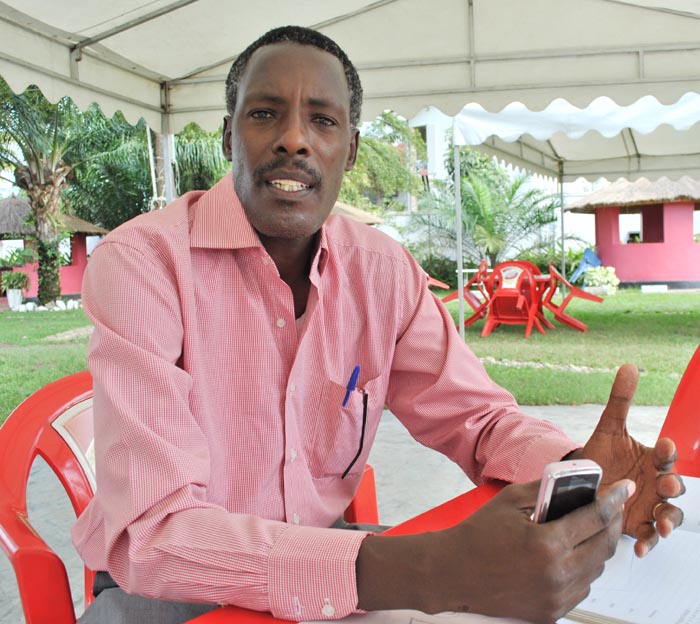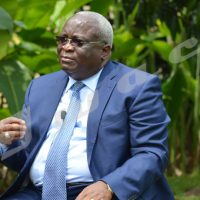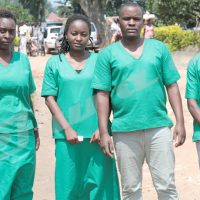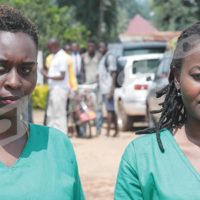The programs of primary and secondary schools resumed on 5 December, after a two-week holiday.Syndicates of teachers predict bad results at the end of the school year if nothing is done.–By Jean Berchmans Siboniyo

Emmanuel Mashandari: “With insufficient exams a teacher can’t know whether or not the teaching has been well assimilated” ©Iwacu
Blue and white, black and white, or purple and yellow; these are pairs of color you could see in the streets of Bujumbura city on Monday, December 5. Pupils were returning to schools. Nevertheless, some of the students go back home after some hours. The reason: “We don’t have teachers for the courses on timetable”, say students we met in the street.
Emmanuel Mashandari, the Chairperson of CONAPES, a syndicate of secondary school teachers, states that the government didn’t consider the reports established by the communal directors about the teachers needed. He gives an example from Bubanza province that needs 200 teachers at the beginning of the 2nd term of the school year. “No recruitment has been doneup now”, he says. He wonders how students may have sufficient knowledge when they go to school and get busy shouting because there is no teacher to get them busy in a different way. Mashandari mentions that the population may not expect good results at the end of the school year. “The best giver of the world has donated what he owns. You can’t give what you don’t have”. He gives examples of courses of entrepreneurship and of music that are in the program of the ‘Ecole fondamentale’, the new basic system of the primary education. He states that the government never trained teachers in the subjects. Some of the teachers consequently prefer to stop teaching what they don’t understand. Others teach what they find easy to teach. “Some schools hire part time teachers. They are not motivated for they are paid less than $0.5 per hour, while they travel a long distance from one place of work to the other”. He indicates that not much can be expected fromthem if they need to go teach part time in another school after having finished their main teaching. They are then overwhelmed by copies to correct and prefer to give few evaluations. “With insufficient exams a teacher can’t know whether or not the teaching has been well assimilated”, he says, concluding by stating that the short term consequences fall upon students while the long term ones will be borne by the government.
Eulalie Nibizi, the Chairperson of STEB, the syndicate of primary school teachers, deplores the fact that ‘the Burundi government neglects the sector of education’. She explains that the sector is not financed sufficiently”. Nibizi adds that the lack of teachers at school make classrooms overcrowded: “five pupils sit on the same chair or ten of them share a single book up now”. She mentions the teacher cannot control the classroom in such conditions. Nibizi says school fees have been increased in communal colleges. Students who don’t pay it are chased, thus missing portions of the program. Nibizi concludes by recommending the government to carry out thorough studies on the requirements for the new programs before launchingit in schools.
Renovat Nzeyimana the Provincial Director in Bujumbura City assumes the lack of classrooms and teachers. He says he will keep asking the government to find a sustainable remedy of the issue.


















 IWACU Open Data
IWACU Open Data

